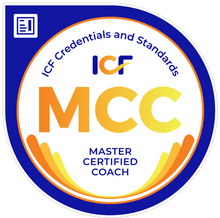Missed out on a promotion?
Missing out on a promotion is always a disappointment. In the wake of such a disappointment, how do you respond, and how does that serve you? Perhaps it knocks you back and you retreat, tail between your legs, telling yourself that it just wasn’t the right time or role, or you just don’t have what it takes. Perhaps you get busy, in the belief that doing more will get you promoted next time or, at the very least, distract you from your perceived failure. Both these reactions are very normal, but do they help you get what you want? Everyone faces setbacks and disappointments but how you respond determines what happens next. Instead of giving up or getting busy, get strategic.
Feel: Be self-aware. Acknowledge the range of feelings that come up in response to not getting what you wanted or hoped for and observe how it makes your respond. What does it make you think and do? Placing this space between your reaction and your action can allow for a more intentional and constructive response. Allow yourself to feel whatever emotions come up but keep it in perspective and don’t let it drive you to act impulsively, emotionally or reflexively.
Act: Once you have regrouped and recentered, seek feedback. If possible, talk to the decision-makers themselves. It can be easy to make assumptions about why you didn’t get the promotion, but instead, seek clear and specific feedback. Prepare yourself to receive that feedback well – listen carefully, seek clarification if needed but avoid getting defensive. Sometimes missed promotions are more about how we do things rather than what we do, and this can be hard to hear. Try to remember that this is an opportunity to grow and learn and ultimately get you where you want to be.
Once you know what you need to work on, seek out opportunities to develop these skills. What do you need to do more or less of? Remember this may be about soft skills too. What does this look like in your day-to-day work? Who might you enlist to help you make these changes or give you some ongoing constructive feedback? You might feel vulnerable inviting such feedback, but it can help you develop, keep you focused and show your commitment to making the necessary changes.
Reframe and reset: Take the opportunity to reassess. Look for positives in the situation you find yourself in. What you get out of your existing position? How you can grow and develop from the feedback you’ve received? Can you find ways to enjoy developing these new skills? Congratulate yourself for handling the experience constructively and reflect on what you have learnt. Perhaps set yourself some new goals and celebrate your success as you meet them. Not only will you feel better responding in this way, but it is also an indicator to others of your self-awareness, temperament, character and resilience.
An executive coach can really help you work through each stage and make the development more sustainable and more enjoyable. And many employers are seeing the value of coaching support now too, so why not ask and see if is available for you?





